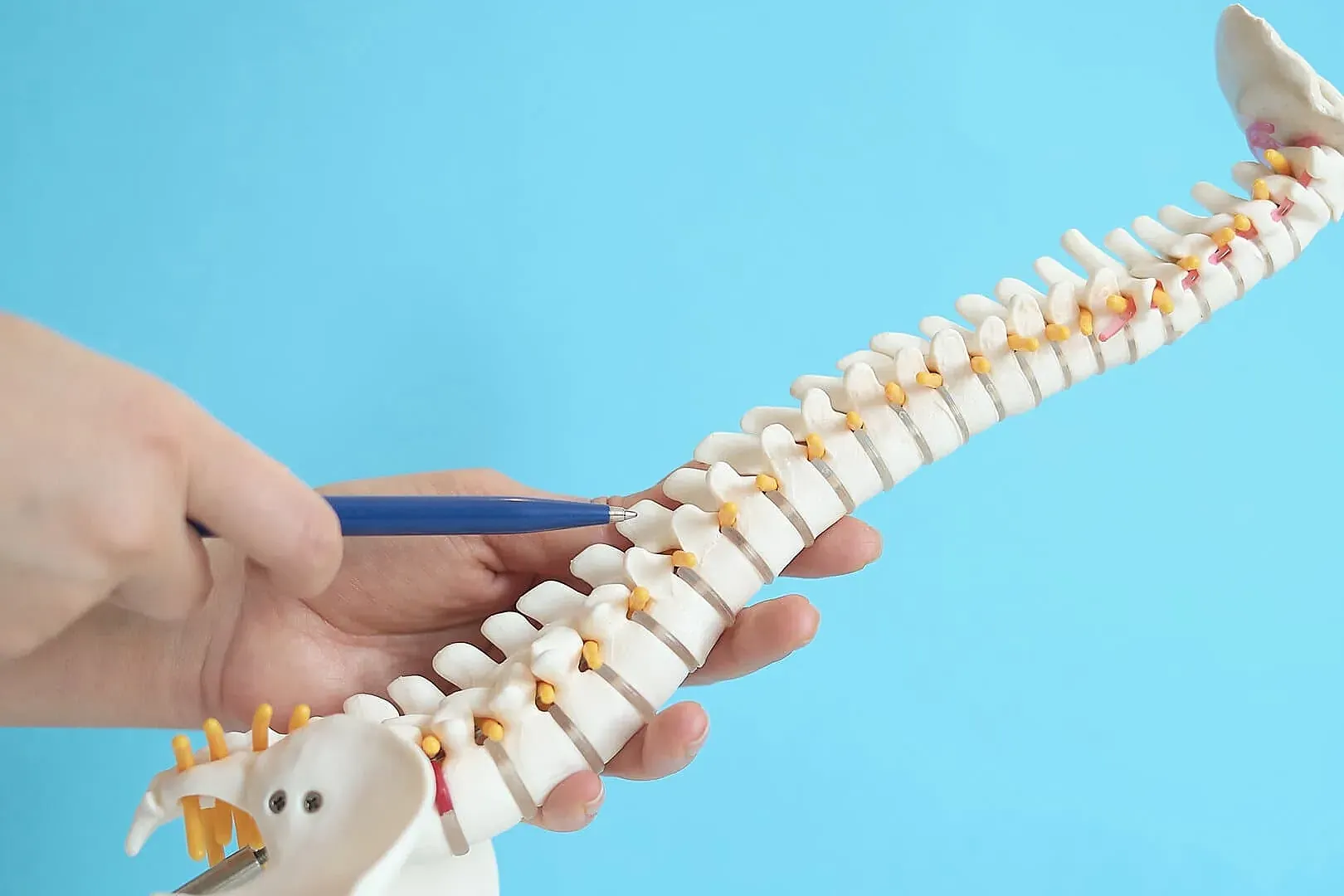
Are you dealing with back pain or movement limitations? Flaval ligament thickening could be the culprit. This condition often results in nerve compression which can impact your daily life. To understand its complexity, we will provide you with straightforward information on the causes, symptoms, and non-surgical and surgical treatment options. Gain the knowledge you need to take the next steps towards managing your spinal health.
Flaval ligament thickening, or ligamentum flavum hypertrophy, occurs when the ligament connecting adjacent vertebrae in your spine thickens. This condition is commonly associated with aging and can lead to lumbar spinal stenosis, causing the spinal canal to narrow and potentially compress the spinal nerves or cord.
Flaval ligament thickening, a prevalent spinal condition, can be triggered by several factors that gradually deteriorate spinal health:
Identifying the symptoms of flaval ligament thickening early can be crucial in managing the condition effectively and avoiding severe complications:
Many individuals experiencing symptoms of flaval ligament thickening can find relief through various non-surgical treatments aimed at managing symptoms and improving spinal health:

Surgery for flaval ligament thickening is usually considered a last resort but becomes necessary when non-surgical methods fail to alleviate symptoms effectively. Before proceeding with these options, it's essential to discuss the potential risks and benefits of surgery with your doctor. Factors like age, overall health, and specific spinal conditions will influence the decision-making process. Many different types of procedures can be performed based on your situation. The most common ones are:
Taking proactive steps to prevent the progression of flaval ligament thickening is essential for maintaining long-term spinal health. Here are effective strategies that can help:

At the Institute for Comprehensive Spine Care, led by Dr. Gbolahan Okubadejo, we combine cutting-edge technology with personalized treatment plans designed to offer relief and improve your quality of life. Our facilities are equipped with the latest advancements in spine health, ensuring that you receive the most effective care possible.
Don't let spinal conditions hold you back. Reach out to our experts who are dedicated to helping you achieve optimal spine health with minimal discomfort. Contact us today and take the first step towards a healthier spine and a more active lifestyle
Flaval ligament thickening, or ligamentum flavum hypertrophy, occurs when the ligament that connects adjacent vertebrae in the spine becomes thickened. This condition is significant because it can lead to lumbar spinal stenosis, where the spinal canal narrows and potentially compresses the spinal nerves or spinal cord, leading to pain and other severe symptoms.
The main causes include aging, chronic strain from activities like heavy lifting or repetitive movement, and poor posture over time. These factors contribute to the degenerative processes that affect the spine, leading to the thickening of the ligament.
Symptoms can vary but typically include lower back pain, numbness or tingling in the extremities, difficulty with mobility and balance, and in severe cases, loss of bladder or bowel control. These symptoms arise due to the pressure put on the nerves by the thickened ligament.
Yes, many cases can be managed effectively without surgical intervention. Non-surgical treatment options include physical therapy to strengthen the muscles and improve flexibility, chiropractic adjustments to relieve spinal pressure, acupuncture, massage therapy to reduce pain, and lifestyle changes such as improving posture and using ergonomic furniture.
Preventative measures include maintaining a healthy weight and engaging in regular physical activity, practicing good posture, and avoiding activities that overly strain the back. These steps help minimize the stress on the spine and can significantly reduce the risk of developing this condition.
June 27, 2024
Dr. Gbolahan Okubadejo, MD, FAAOS is one of New Jersey's top spine surgeons and the head of The Institute for Comprehensive Spine Care. Dr. Okubadejo has been in practice for over 15 years. He received his undergraduate degree from Brown University in Providence, Rhode Island, and went on to receive a medical degree from the prestigious Johns Hopkins University School of Medicine in Baltimore, Maryland. He completed his internship and orthopedic surgery residency at Barnes-Jewish Hospital at the Washington University School of Medicine in St. Louis, and completed a spine surgery fellowship at the University of Pittsburgh Medical Center in Pittsburgh. Dr. Okubadejo completed his fellowship in 2008.